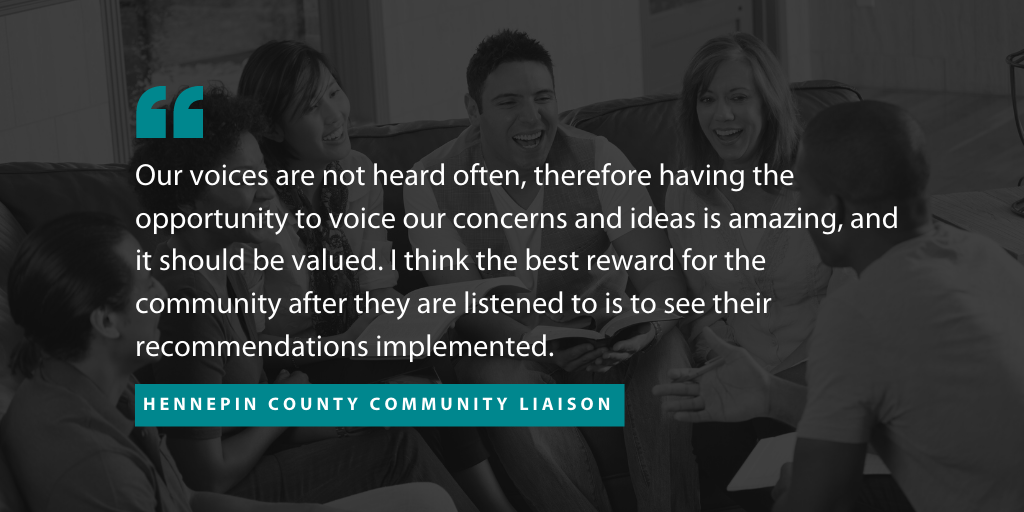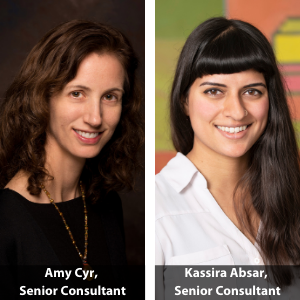
 Earlier this year, we engaged individuals and families experiencing poverty in Hennepin County about the strengths and needs of their communities—a project that would not have been possible without community liaisons who brought key community connections and knowledge.
Earlier this year, we engaged individuals and families experiencing poverty in Hennepin County about the strengths and needs of their communities—a project that would not have been possible without community liaisons who brought key community connections and knowledge.
Centering community members as experts is an important part of The Improve Group’s Community Responsive Approach to projects like the 2020 Community Strengths and Needs Assessment we conducted with the Community Action Partnership of Hennepin County (CAP-HC). Across the nation, Community Action Agencies—organizations that seek to reduce poverty and connect people to available resources—undertake these assessments to understand the needs of the communities they serve.
We learned from a previous needs assessment that collaborating with community liaisons—community members and leaders who have strong ties to and relationships in their communities— is important for success. For our work with CAP-HC, we partnered with four liaisons who brought an amazing variety of backgrounds and skills—ranging from Spanish and Somali language fluency, to specialization in daycare services, to deep involvement in the fight for racial justice.
The liaisons were instrumental in achieving high workshop participation rates and engaging a diverse cross-section of the community. Liaisons had several key roles in the project:
- Reviewing and tailoring outreach materials to ensure they were respectful and resonated with community members whom we were asking to share their experiences and expertise;
- Helping to design community engagement workshops to ensure they were relevant to community members and accessible for participants; and
- Facilitating Spanish- and English-language community workshops in ways that created space for more honest and open input than if they had been run exclusively by an outside evaluation firm.
For example, the liaisons provided important input on what participants would need to attend the pre-pandemic workshops—they suggested that the workshops include childcare and a meal (participants and liaisons were also compensated for their collaboration and expertise). This turned out to be incredibly important: At one workshop, there were 28 participants and 23 children. This shows the importance of equity-focused evaluation, a key part of which is working alongside community partners. Without offering childcare, we would have missed the perspective of people experiencing poverty who have young children—an important population for CAP-HC to hear from.
Liaisons also suggested that we offer participants information on the services that CAP-HC provides. One liaison said she thought the project was a valuable opportunity for people from different communities to help improve the services in their county.
“Our voices are not heard often, therefore having the opportunity to voice our concerns and ideas is amazing, and it should be valued,” the liaison said. “I think the best reward for the community after they are listened to is to see their recommendations implemented.”
Another liaison noted the community members “were able to express themselves, their concerns, their hopes, and best of all in their own language. Also, people shared resources and experiences that complete the experience of getting to know other people with the same struggles and hopes.”
Liaisons’ insights will continue to inform our work, particularly around how we can better partner with communities and make more meaningful connections in the future. Thank you to our partners—CAP-HC, community liaisons, and community members—for all your contributions to this project!
Connect with us:
To learn more about how partnering with community liaisons can make community engagement more authentic and meaningful, feel free to reach out—we’d love to hear from you. And don't forget to read the full report from the CAP-HC Community Needs Assessment here!
